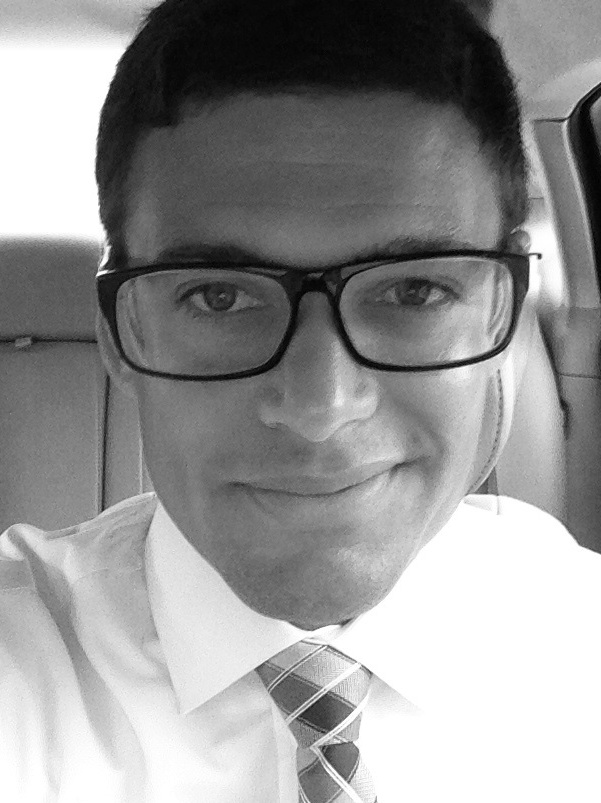By Marcus Laster, professional, father, husband
Like a tripwire, the fight or flight mechanism in my 12 year-old brain was triggered. My hands were shaking and my heart pounded as if it was going to come out of my chest. Tunnel vision made it seem like I was looking though a pipe as I focused on the sandy-haired boy in front of me. He was a classic bully.
A few minutes earlier he was picking on my friend at the neighborhood pool. My friend was much smaller than the bully, so as a heroic gesture (at least I thought), I challenged the bully to a fist fight next door in a parking garage. “Dumb idea,” I said to myself a few minutes later, because now the bully was daring me to take a swing. I was terrified but I couldn’t let it show.
“Hit him! Hit him!” the spectators, all young boys, yelled at me as they gathered around us in the parking garage.
I exploded. Rage flowed out of me. I threw a wild arching blow with my right hand striking the bully. Then another. And another. I was fully out of control now, and the boys watching jumped in and pulled me off of the kid. Thankfully, he was OK aside from some minor cuts and bruises.
But inside, I was far from OK. I was resentful because of the constant strife in my life at that time. I grew up in financial turmoil, saw my mom abused physically and verbally and lived in fear of my dad. I felt like the weight of the world was on my shoulders. So I unloaded some of that weight on the bully. The score I was settling wasn’t really with him, it was with my situation. Because of my pain, I felt justified to lash out.
Like me, have you lashed out in anger at others or even damaged yourself because of pain inside? Was it caused by negative effects from your childhood related to Childhood Domestic Violence (CDV)? If so, statistics on CDV.org say you are not alone. Those who experience CDV are 50% more likely to abuse alcohol or drugs and 74% more likely to commit a violent crime. And the biggest tragedy of all – they are 6 times more likely to commit suicide. I don’t want to see another person added to these statistics.
I fought an internal battle with anger and sadness throughout my formative years. To get my feelings out, I sometimes verbally laid into someone who I felt deserved it. Other times, although rare thanks to my involvement in sports, I lashed out physically against other boys. Each time the result was the same. I didn’t feel like some superhero standing for justice or some crime fighter helping the weak. No, my outbursts resulted in guilt and emptiness.
What Helped Me?
Unfortunately, CDV.org wasn’t around 20 years ago when I was in college. That’s when I began to work through the impact my upbringing had on me. CDV.org would have been a tremendous resource. If you haven’t already, visit the “tools and resources” page on CDV.org to see for yourself.
Thankfully, I had mentors, relatives and people at church I could talk to and spend time with. They helped me when I needed support. If you experienced CDV, establishing this kind of support system can also help you. Confiding in a licensed professional or counselor is something I’d also recommend if you are able to access one.
Compassion
The most life changing help I received came after I made a personal decision as a young adult to turn to my faith and learn to live compassionately through the Bible. Compassion is giving, and putting other people’s needs before your own. Here are two Bible verses I share with my kids and challenge myself to live by daily:
“Do to others as you would have them do to you.”
- Luke 6:31 (NIV)
“…love your neighbor as yourself”
- Mark 12:31 (NIV)
But how does one live compassionately? Here are some simple things you can do.
- If you see a co-worker who is down, send them an encouraging text message or better yet, invite them to grab a cup of coffee and chat with them face to face.
- Volunteer at a local charity. Bring some friends with you.
- Give financially to your favorite charity (like CDV.org). If you don’t have extra money to give, donate your time.
- Serve at your church.
- Collect supplies or organize a canned food drive for a homeless shelter.
- Mentor a student.
- Smile.
“Never worry about numbers. Help one person at a time and always start with the person nearest you.”
― Mother Teresa
Go and Give
By unleashing my anger and resentment on that bully all those years ago, I was taking. But by learning to live compassionately as an adult, I am now giving. That’s the choice we have as CDV survivors. What choice will you make? Please go and give.
My name is Marcus. I am a professional, father, husband and someone like you who is trying to live life right. In my spare time, I write about faith-based things for professionals seeking to live a valuable life. Visit my blog at www.marcuslaster.com.

